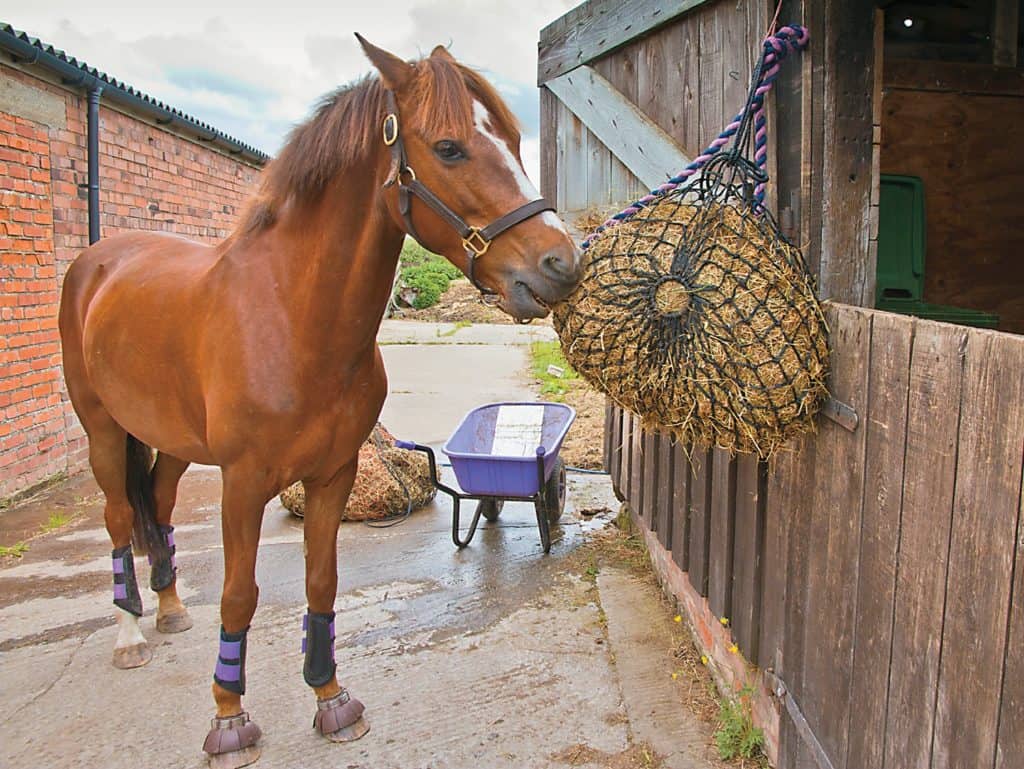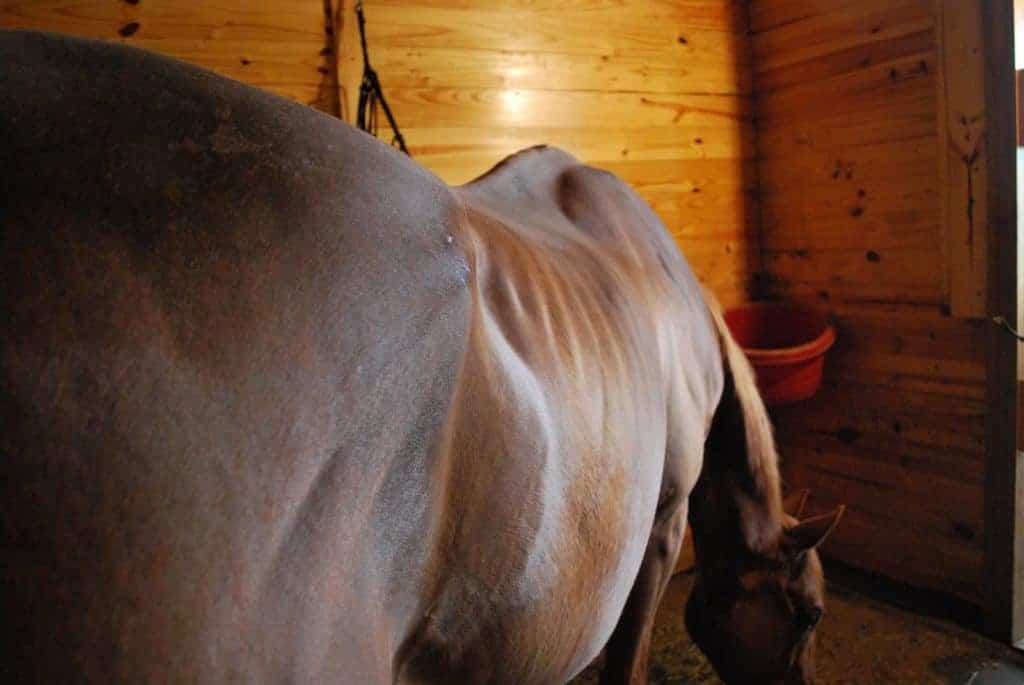
Hay for Horse Health
Horses with conditions such as muscle or metabolic disease might have special hay needs to stay healthy.

Horses with conditions such as muscle or metabolic disease might have special hay needs to stay healthy.

More than four hours without feed is fasting for a horse and can lead to issues. The solution for evening feeding? Slow feeders extended nighttime “grazing” time by 95-105%, researchers observed.

A researcher investigated how long horses spent eating when offered varying amounts of soluble fiber. Her findings could help your horse avoid health and behavior issues, such as gastric ulcers and cribbing.

Up to 93% of performance horses suffer from gastric ulcers. Is yours one of them? Here’s how to manage the condition.

What do we actually know? Dr. Hoyt Cheramie covers anatomy, epidemiology, pathophysiology, and management of horses with glandular gastric ulcers.

Tips include ensuring constant forage access, providing pasture turnout, and limiting concentrate intake, among others.

Equine glandular gastric disease has a distinct pathology, risk factors, diagnostics, and treatment approaches.

What could be the cause behind this young horse’s strange tongue lollying at feeding time? Dr. Sue McDonnell answers.

Are your feeding practices doing more harm than good? Experts share four ways to improve your horse’s digestive health.

Set your new horse up for success by following these tips to transition his diet and avoid gastric ulcers.

A U.S. Equestrian Team veterinarian who has overseen the shipping of horses to six Olympic Games shares what steps to take before, during, and after a long-distance trailer ride.

Researchers recently found that, despite what can be an arduous first year of transition, healthwise, owners are overwhelmingly very satisfied with their horses and most said they’d buy an OTTB again.

Health conditions, management changes, and palate preferences can affect a horse’s appetite.

Riding before your horse gets fed could put him at risk for gastric ulcers. Find out why.

While physicians have used capsule endoscopy in humans for more than a decade, it’s only recently become commercially available on the veterinary market for dogs and shows promise for use in horses.

From when to administer ulcer medication to how to deal with recurring ulcers, veterinarians offer tips and tricks on managing this common horse health condition.
Stay on top of the most recent Horse Health news with
"*" indicates required fields